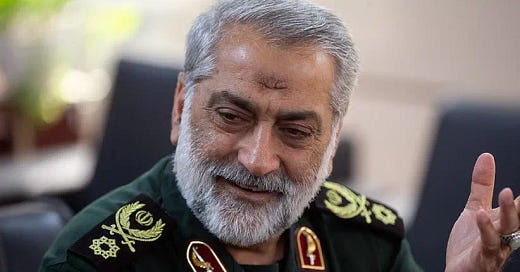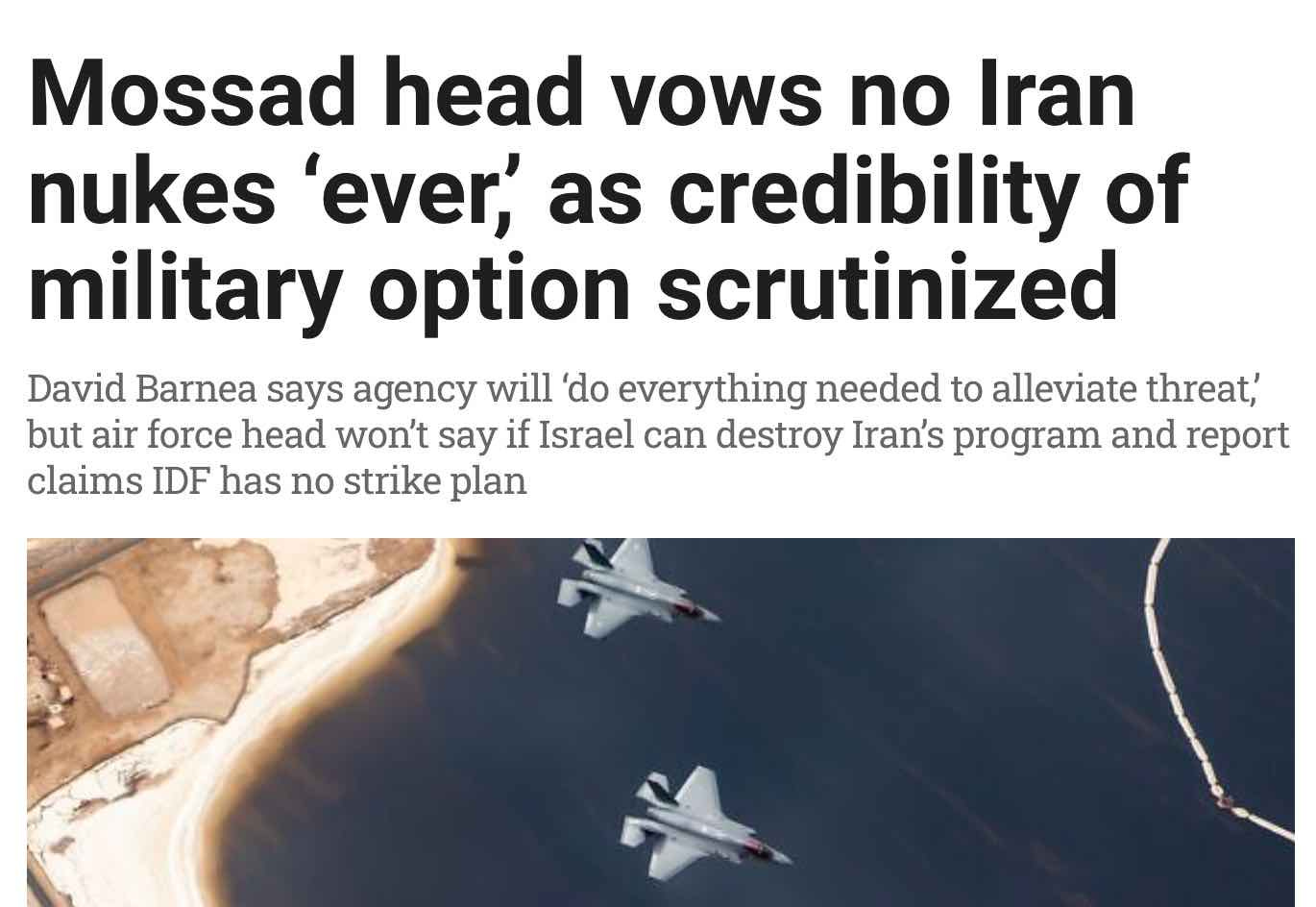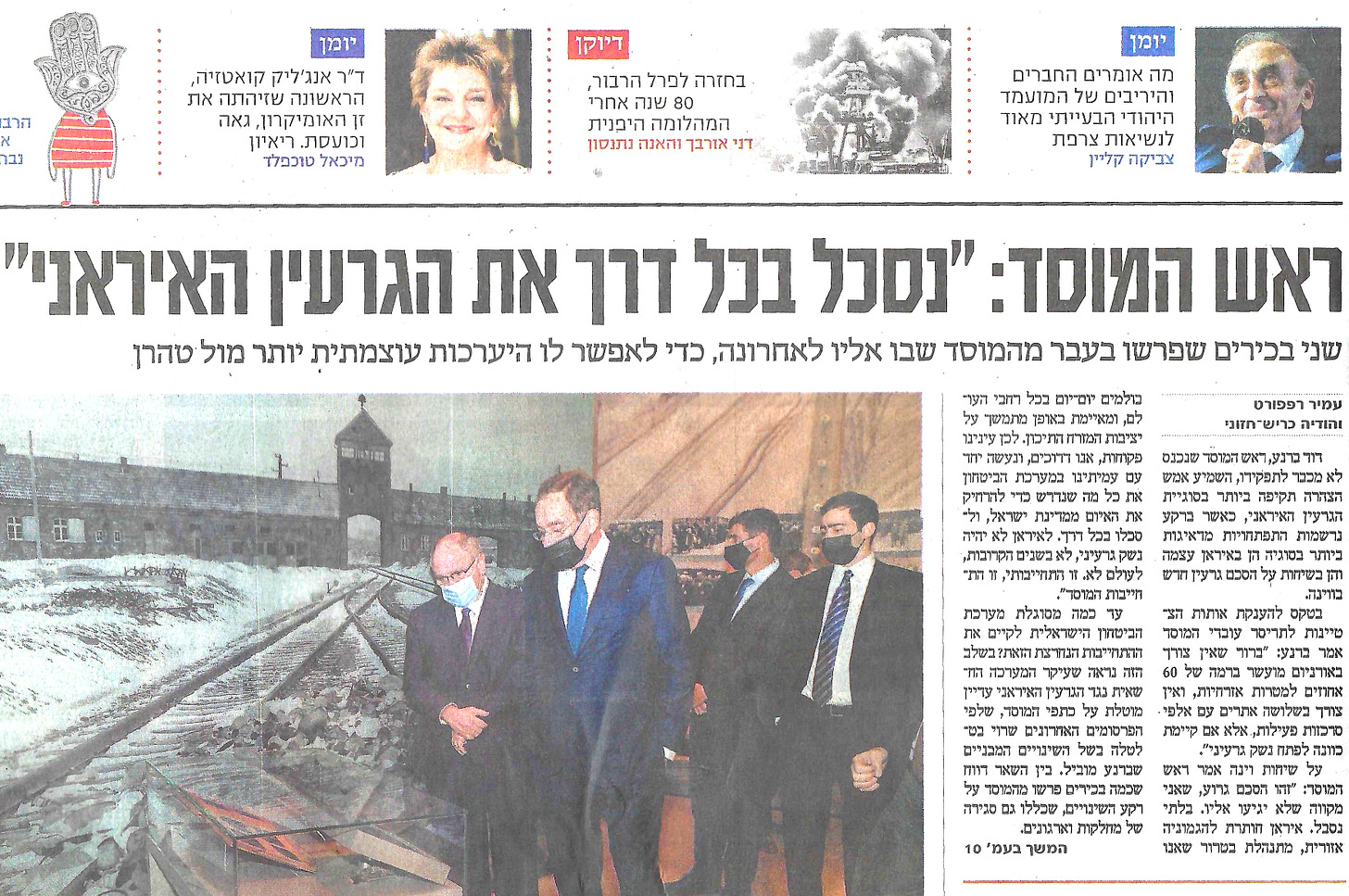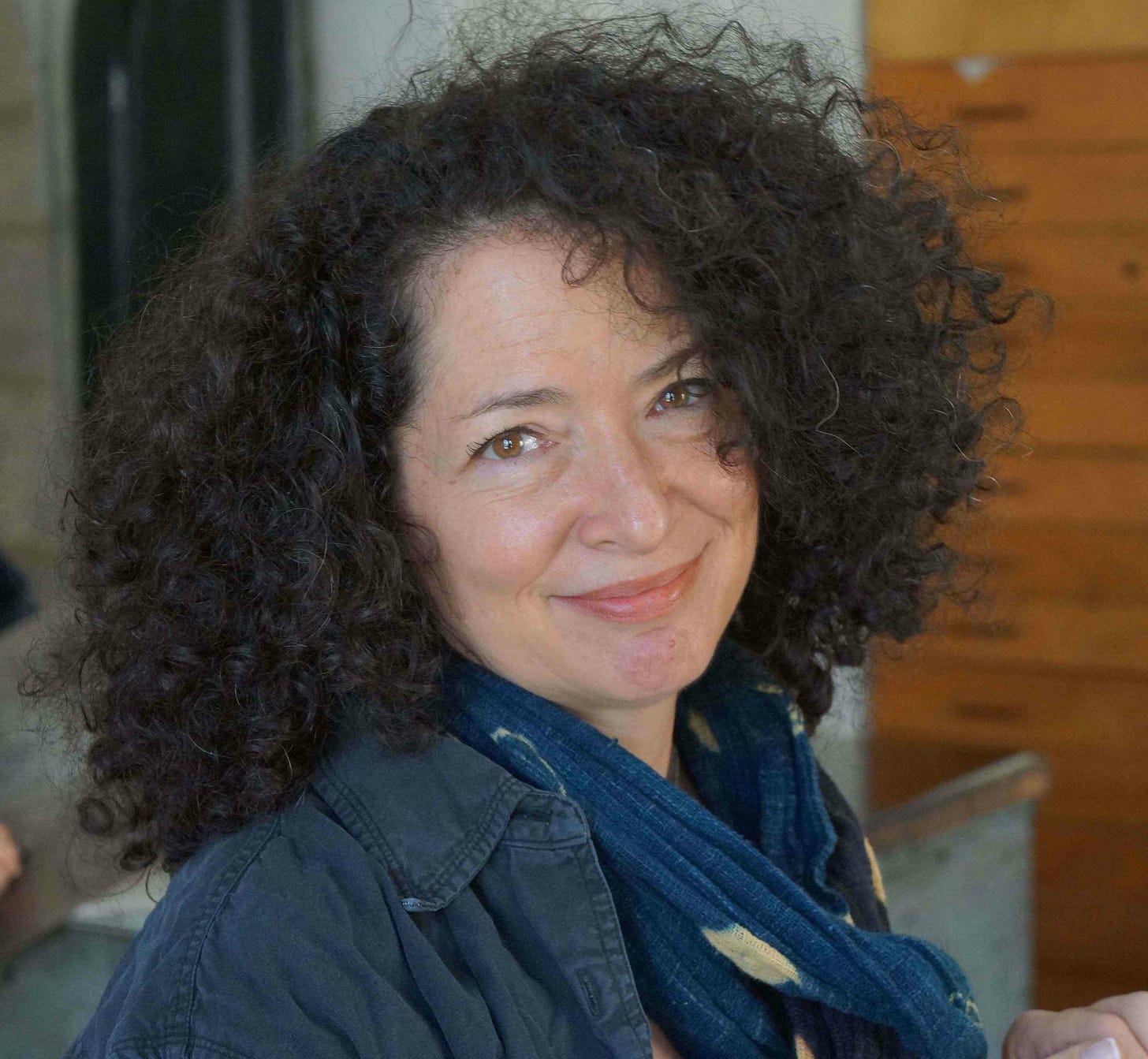

Discover more from Israel from the Inside with Daniel Gordis
Is Iran about to undo Zionism's very purpose?
It's not their using that weapon, but having it, that could change everything
Fifteen years or so ago, we were sitting around the Shabbat table when the conversation turned to the question of whether there were threats to Israel that it could not survive. That’s hardly our usual Shabbat table fare, but those were the years not long after the intifada, and I guess it was still in the air.
In the middle of the conversation, our daughter’s boyfriend (now the father of our granddaughters), born and raised in Israel and a veteran of seven years in military intelligence, interrupted the flow of the discussion and said:
I have no idea what you’re talking about. That’s the most Diaspora-mentality-laden conversation I’ve ever heard here. No Israeli who was born after the Yom Kippur War has any recollection of a single moment in which Israel faced an existential challenge. Was the Intifada horrible? Of course it was. But at the end of the day, they blew up restaurants and buses. You can’t take down a country that way. They can hurt us, obviously, but destroy us? What are you talking about?
I’ve thought about that soliloquy numerous times since, because it struck me then, as it does still, as the ultimate statement of Zionism’s success. Not “success” in the sense that the Jews were invulnerable, but “success” in the sense that the Jews felt invulnerable. That was the purpose of Zionism—to change the existential condition of the Jews.
The primary purpose of Zionism was to restore dignity to the Jewish people, to end millennia of Jews living in fear. You could see it and hear it everywhere in the heyday of Zionist ideology. Herzl said it often. The anthem of Beitar, Jabotinsky’s movement that would produce Menachem Begin and the Likud, proclaimed, ivri gam ben oni, ben sar—every Jew, even a poor one, is royalty.
When Begin launched Operation Litani to get the PLO out of southern Lebanon in 1978 (an operation that morphed into the 18-year-long Lebanon War), it was because he couldn’t bear the notion that in a sovereign Jewish state, children in the northern city of Kiryat Shmona were crying themselves to sleep in bomb shelters, as Katyusha rockets pummeled the town. Hiding from enemies, shivering in fear and praying that nothing would happen to them was Judaism of Europe, Begin believed. He was going to end that.
What was the point of a Jewish state if it didn’t eradicate fear? In what way was Israel possibly a success if Jews would live in the Middle East the way that they had in Europe?
Begin had sounded like a biblical prophet the year prior when he told an exultant crowd after the June 1981 destruction of the Iraqi nuclear reactor at Osirak:
The nuclear reactor has been destroyed, it is no more! There will be none in the future! The Children of Israel shall live! And they will build for themselves homes, and the Jewish people will live in the Land of Israel, for generations and generations, and there will be no horror. These were acts of salvation, for the sake of our nation, and most important, for the sake of our children…
As we’ve noted before, the Prime Minister had created what is now known as “the Begin Doctrine”: no enemy of Israel would ever be permitted to obtain a weapon of mass destruction. Preemption as an Israeli policy had already surfaced in June 1967, when Israel destroyed the Egyptian air force on the ground before Nasser could unleash what became the Six Day War. But then the issue became nuclear weapons. Begin leveled Osirak in 1981. Olmert took out a Syrian reactor under construction near Damascus in 2007.
Just over a week ago, Brigadier-General Abolfazl Shekarchi, spokesman for Iran’s armed forces, stated during an interview, "We will not back off from the annihilation of Israel, even one millimeter. We want to destroy Zionism in the world.”
At least publicly, Israel is taking him seriously. Naftali Bennett’s government, unlike our previous administration, is trying to keep the deep divisions between Washington and Jerusalem under wraps. The prevailing assumption here is that America is too weak and too tired to stop Iran—the US will sign a bad deal with Iran if it can get one, or no deal at all if it can’t, but either way, Iran is going to continue enriching uranium at levels much higher than any domestic, peaceful purpose would require.
The agonizing question that Naftali Bennett faces when he tries to fall asleep at night is what needs to be done to save Zionism. Or more accurately, if one believes, as he and many Israelis clearly do, that the future of the Jewish people is almost certainly going to unfold in Israel and nowhere else, what must be done to save the Jewish people?
Some very thoughtful and responsible thinkers, like the poetic Yossi Klein Halevi, advocate attacking Iran. Obviously, whether Israel has the capacity to do that none of us civilians has any idea. Nor do we know whether Iran is bluffing. But Klein Halevi is not willing to take that chance: “I’m very wary of Holocaust analogies. But for me, this is a ‘never again’ moment.”
Yet everyone knows that a surgical strike of the Osirak sort is not going to happen with Iran. Should Israel decide to attack, Iran will order Hezbollah to unleash its arsenal of some 130,0001 rockets, many of which have pinpoint accuracy and can hit anywhere in Israel. As Klein Halevi said to me in a conversation last week, if Israel does strike Iran, Israel will be a very different country afterwards, in numerous ways, including geographically. We simply have to be prepared for Iran to hit our hospitals, our airport, the water and electric grids, Tel Aviv and Haifa and much more.
Hence these preparations by the Home Front Command over the past month.
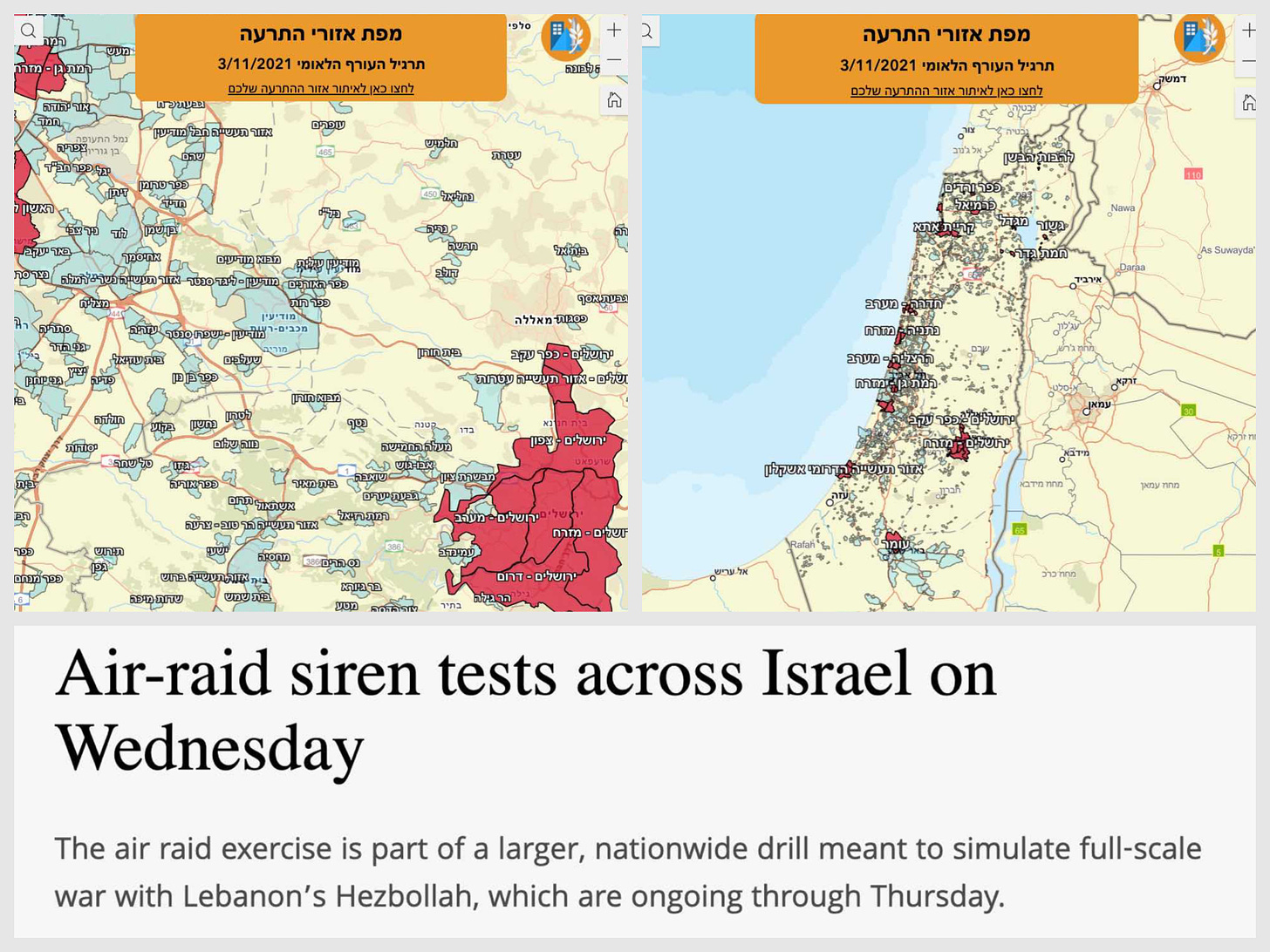
If no surgical strike is possible, and if Israel is thus likely to take a horrific beating in the process, why in the world would Israel do it? How does one do the moral calculus? How many Israelis deaths does a mere delay of Iran’s nuclear capacity merit? Should one trigger almost certain widespread devastation to forestall a threat that might never be carried out?
How does one justify even thinking about that?
The answer, for those who are in favor of the attack, lies in my (now) son-in-law’s comments some fifteen years ago. Jewish life in Israel is as vibrant as it is because here, Jews do not live in fear. Israel ranks high in the 2021 World Happiness Report (it’s #11, while the US is #14, for example), while according to the World Bank, its birthrate is the highest of any developed country in the world.
(And it’s not because of Israeli Arabs (who now have a birthrate lower than do the Jews) or the Haredim. According to the Taub Center, “even among Jewish women who self-identify as secular and traditional but not religious, the combined TFR exceeds 2.2, making it higher than the TFR in all other OECD countries.”)
With stress high, compulsory military service, armed conflagrations regular, and challenges aplenty, why are Israelis happier than most and having more kids than the rest of the developed world? Because they feel safe, and they have a sense of purpose. The purpose, whether or not they articulate it to themselves this way, is being part of one of the greatest stories of human rebirth in all of history. It’s the story of bringing a nation back from the precipice, the story of sowing hope where despair should have reigned, of embracing the future even while remembering a tear-rinsed past. It’s the story of taking a broken, shattered people that had lived in fear and with weakness for centuries, and in the space of a few decades, transforming that people completely.
Give people that, and they’ll feel happy. Give them happiness, and they have lots of kids. (Interesting to compare that to recent reports that in the US, “some would-be parents see the future as too dark to procreate.”)
Those numbers alone are the most profound indication of Zionism’s success.
And that is why, if you’re Naftali Bennett, you might consider doing the unthinkable, because not doing it is even more unthinkable.
Iranian Brigadier-General Abolfazl Shekarchi isn’t the only one engaged in saber-rattling. Israel’s doing it, too. Just this week, the head of the Mossad stated perhaps more clearly than anyone before that Israel will not abide an Iranian nuclear weapon:
Makor Rishon, on the front page of Friday’s paper, laid out two stories in a brilliant manner. The headline reads: “Mossad Chief: We will prevent Iranian nukes in any way necessary.” The photograph was actually part of a different story, which covered the visit by Thomas Nides, the new American ambassador to Israel, to Yad Vashem. But the background photo of the tracks leading into Auschwitz served both stories, really.
Makor Rishon was saying what Yossi Klein Halevi said: it’s a “never again” moment. How to save the Jewish people has suddenly become an agonizing question.
In our family, on each night of Hanukkah we sing all the stanzas of Maoz Tzur. It was difficult this year not to reflect on how timeless are the sentiments of the final stanza:
Bare Your holy arm and hasten the time of salvation
Take retribution against the evil nation …
For deliverance has been too long delayed,
there seems to be no end to the evil.
Hanukkah, with its lights brightening from night to night, is our annual reminder of both the miracle of our survival and our obligation to summon the strength to keep going.
Quite rightly, very few people know what the leadership of this country is thinking or planning. But underestimating the grit and determination at the heart of Israel, the commitment to not letting those lights go out, would be a very foolish mistake.
In this week's column, we noted that Israel's place on the world's "happiness scale" and its birthrate are testament to the sense of purpose and meaning at the heart of Israeli life. Earlier, we've looked at how music in Israel is also an expression of that, and now, we move on to the arts.
Andi Arnovitz (https://andiarnovitz.com/) is a Jerusalem-based artist who does stunning work. We spoke with her to hear how Jewishness and Israeli-ness merge and are reflected in her art.
The full episode will be available later this week for subscribers to Israel from the Inside; this excerpt is accessible to everyone.
Our twitter feed is here; feel free to join there, too.
https://missilethreat.csis.org/country/hezbollahs-rocket-arsenal/#easy-footnote-bottom-3-4179


